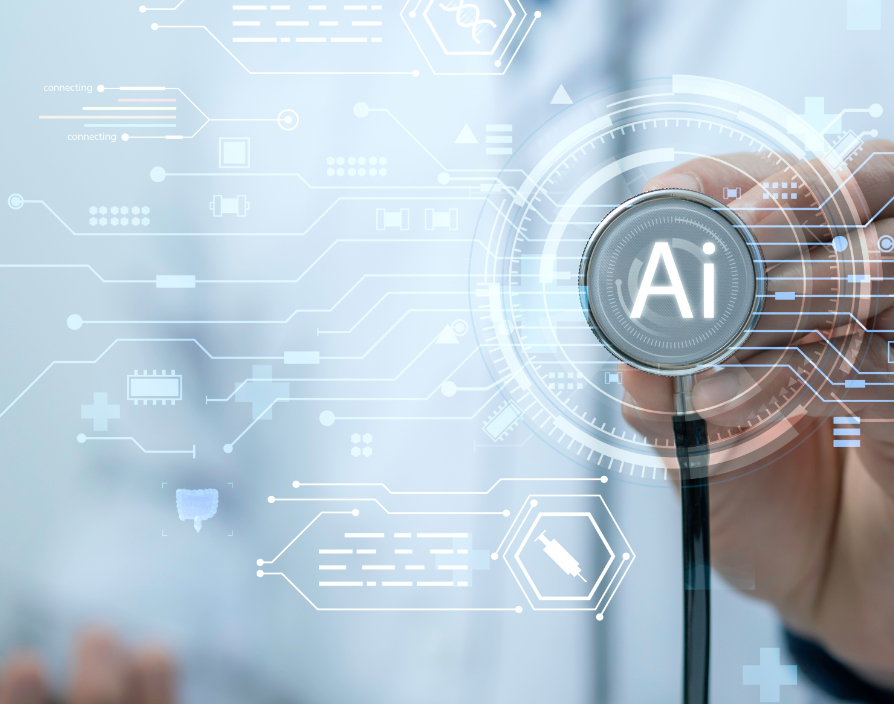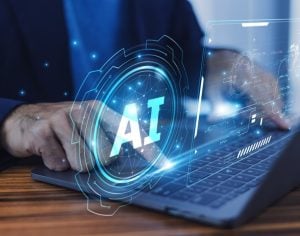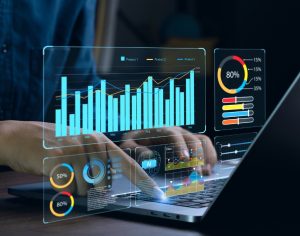AI is significantly impacting everyday society by enhancing efficiency, personalizing experiences, and driving innovation. Here, we explore the transformative effects of AI across these sectors, providing insights into its real-world applications and predicting its future impact.
Healthcare: Revolutionising diagnosis and treatment
AI in medical imaging
AI algorithms have drastically improved the accuracy of medical imaging. For example, Google’s AI system has demonstrated superior performance to human radiologists in detecting breast cancer from mammograms. This advancement reduces diagnostic errors and enables earlier intervention, potentially saving lives.
Predictive analytics for patient care
AI-driven predictive analytics offer personalized treatment plans by analysing vast amounts of medical data. For instance, IBM Watson Health’s AI platform provides oncologists with evidence-based treatment options, enhancing the precision and effectiveness of cancer care. This personalized approach is revolutionizing patient care, leading to better outcomes.
Robotic surgery
AI-powered surgical robots, such as the da Vinci Surgical System, transform surgical procedures. These robots assist surgeons by providing real-time data and enhancing their skills, allowing for minimally invasive surgeries with higher precision. Patients benefit from shorter recovery times with reduced risk of complications.
Finance: Enhancing security and efficiency
Fraud detection
AI is crucial in identifying and preventing fraudulent activities. Companies like Mastercard employ AI to analyse transaction patterns and detect anomalies indicative of fraud. This real-time detection significantly reduces financial losses and enhances customer security.
Algorithmic trading
AI algorithms transform stock trading by analysing market data, predicting trends, and executing trades at optimal times. Hedge funds and investment firms like Renaissance Technologies leverage AI to achieve higher returns through data-driven trading decisions. This approach enhances market efficiency and offers better investment opportunities.
Customer service
AI-powered chatbots and virtual assistants are revolutionizing customer service in the financial sector. Bank of America’s virtual assistant, Erica, helps customers check account balances, transfer money, and receive personalized financial advice. This seamless interaction improves the banking experience and increases customer satisfaction.
Retail: Personalizing Customer Experiences
Recommendation systems
E-commerce giants like Amazon use AI to provide personalized product recommendations. By analysing user behaviour and preferences, AI algorithms suggest products customers will likely purchase, driving sales and enhancing the shopping experience. This customized approach increases customer loyalty and boosts revenue.
Inventory management
AI optimizes inventory management by predicting demand and managing stock levels. Walmart uses AI to forecast product demand, ensuring shelves are stocked with the right products at the right time. This reduces wastage, improves efficiency, and enhances customer satisfaction.
Visual search
AI-powered visual search technology lets customers search for products using images. Pinterest’s Lens feature enables users to take photos of items and find similar products on the platform. This enhances the discovery process, making shopping more intuitive and engaging.
Transportation: Innovating mobility solutions
Autonomous vehicles
AI is the backbone of self-driving cars, with companies like Tesla and Waymo leading the way. AI algorithms interpret sensor data, navigate roads, and make real-time driving decisions, promising to enhance road safety, reduce traffic congestion, and transform urban mobility.
Predictive maintenance for fleet management
AI predicts maintenance needs for transportation fleets, ensuring vehicles remain operational. UPS uses AI to monitor its delivery trucks, predicting mechanical issues and scheduling maintenance to avoid breakdowns. This enhances operational efficiency and reduces costs.
Traffic management
AI improves traffic flow, reducing congestion in urban areas. The city of Hangzhou in China implemented an AI-driven traffic management system developed by Alibaba. This system analyses traffic data in real-time to optimize signal timings and manage traffic flow, significantly reducing travel times.
Education: Enhancing learning and accessibility
Personalized learning
AI tailors’ educational content to individual students’ needs. Platforms like Coursera and Khan Academy use AI to recommend courses and resources based on a student’s learning history and preferences. This personalized learning experience helps students achieve better educational outcomes.
Automated grading
AI assists educators by automating the grading process. Tools like Gradescope use AI to grade assignments and exams, providing quick feedback to students and freeing up time for teachers to focus on instruction. This enhances the efficiency and effectiveness of the educational process.
Accessibility
AI enhances accessibility for students with disabilities. Microsoft’s Seeing AI app uses AI to describe the environment to visually impaired users, providing them with greater independence and improving their learning experience. This inclusivity ensures that all students have equal opportunities to succeed.
Conclusion
AI is deeply integrated into everyday life, transforming industries and enhancing efficiency, safety, and personalization. AI’s real-world applications are vast and impactful, from healthcare and finance to retail and agriculture. As technology advances, integrating AI into various sectors will further revolutionize how we live and work, promising a future where intelligent solutions drive societal progress and improve quality of life.
Share via:










































